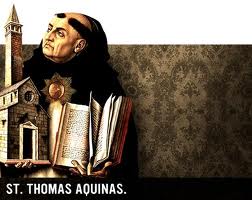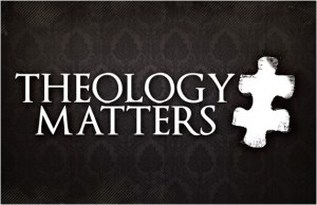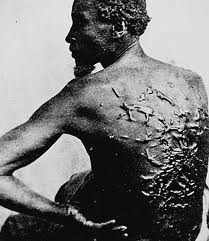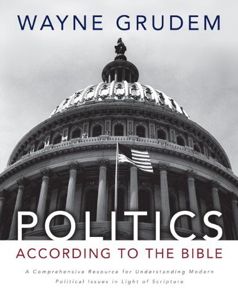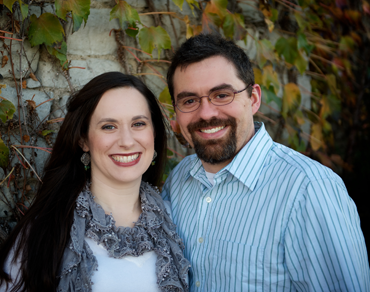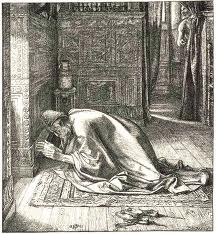Archive for September 2011
Aquinas on Divine Impassibility
By Paul Helm This is the last of three posts on theological connections between medieval and reformed theology. The Reformation was a re-formation, not a revolution, and the Reformed churches regarded themselves as catholic, building on the ecumenical creeds and the patristic and medieval theology, and paying great respect to the great doctors of the…
Read MoreWisdom Christology
On the “Reviews and Interviews” page Luke Stamps reviews Daniel Ebert’s new book, Wisdom Christology: How Jesus Becomes God’s Wisdom for Us. Luke begins, “Wisdom and Christology belong together” (2). This juxtaposition is one of the primary assumptions of Daniel Ebert’s new book, Wisdom Christology: How Jesus Becomes God’s Wisdom for Us. Ebert, a former…
Read MoreThis Week’s Book Giveaways
The countdown continues to the release of the first issue of Credo Magazine this October. This October’s issue, The Living Word, will feature articles and interviews with theologians like Timothy George, John Frame, Gregg Allison, Robert Saucy, Owen Strachan, Fred Zaspel, Tim Challies, Matthew Barrett, Tony Merida, Michael A.G. Haykin, Thomas Schreiner, and many others.…
Read MoreNew Website!
This morning we launched the new website for Credo Magazine. I would like to thank Micah Fries for his work on this project. We hope you enjoy the improved site and some of its new features. We have noticed, however, that the website seems to work best in Firefox (if you are using Internet Explorer…
Read MorePut the theology book down and do something that matters
By Marc Cortez [The following is the opening devotional that I presented at the NW regional meeting of the Evangelical Theological Society, 2011.] What are we doing here? I’m sure we could walk out this building and, within five minutes, find any number of hurting people desperately in need of care and attention, longing for…
Read MoreBoth proclaimers of the gospel and moral reformers
By Michael A.G. Haykin Not long after his conversion, William Wilberforce (1759–1833), at the time a member of Parliament, wrote to the evangelical minister John Newton (1725–1807) on December 2, 1785, wanting to visit him for spiritual advice about his career, for Wilberforce was contemplating leaving the realm of politics. For a number of eighteenth-century…
Read MoreWe Have a Winner!
This week’s winner for the book package giveaway is…Matthew George! Matthew George, you have won the following books: Understanding the Times: New Testament Studies in the 21st Century: Essays in Honor of D. A. Carson on the Occasion of His 65th Birthday, edited by Andreas J. Kostenberger and Robert W. Yarbrough. Did Adam and Eve…
Read MoreCelebrating Divorce
By Matthew Barrett “Ever since I was little,” says Hiroki Terai, Tokyo’s pioneering divorce planner, “I wondered, If you have a wedding ceremony, why not have one to mark your divorce?” Described as a “man of good cheer” Terai has created a rave of interest in Tokyo Japan for ceremonies celebrating one’s divorce. Paige Ferrari…
Read MoreInterview with Wayne Grudem
Wayne Grudem is research professor of theology and biblical studies at Phoenix Seminary in Phoenix, Arizona. Aaron Cline Hanbury has taken the time to ask Grudem some questions about his book, Politics – According to the Bible (Zondervan, 2010). What got you started on this project? The theological reason is that I think God’s Word…
Read MoreWhat I have learned after five years of pastoring (Tim Raymond)
On April 9, 2011, I celebrated five years as Pastor of Trinity Baptist Church in Muncie, Indiana. As I reflect back on these past years there are five main lessons that come to mind: 1. Pastoral ministry requires far more courage than I ever dreamed. In Bible college and seminary I was told that pastoral ministry…
Read MoreTo Know God is to Love Him
By Matthew Barrett When the Bible speaks of “knowing” God, is it merely cognitive? Or is there something much more, namely, not just knowledge but love for God? I believe if we look at the texts throughout Scripture we will see that when it speaks of knowing God, it is not mere knowledge in view…
Read MoreHuman Intellectual Autonomy: Rationalism and Irrationalism
by Matthew Barrett What is the main difference between a liberal view of revelation and an orthodox (biblical) view of revelation? Perhaps many differences could be mentioned. However, the main difference is the liberal affirmation of human autonomy, specifically in the area of human knowledge. In regards to revelation, the Bible does not sit in…
Read More